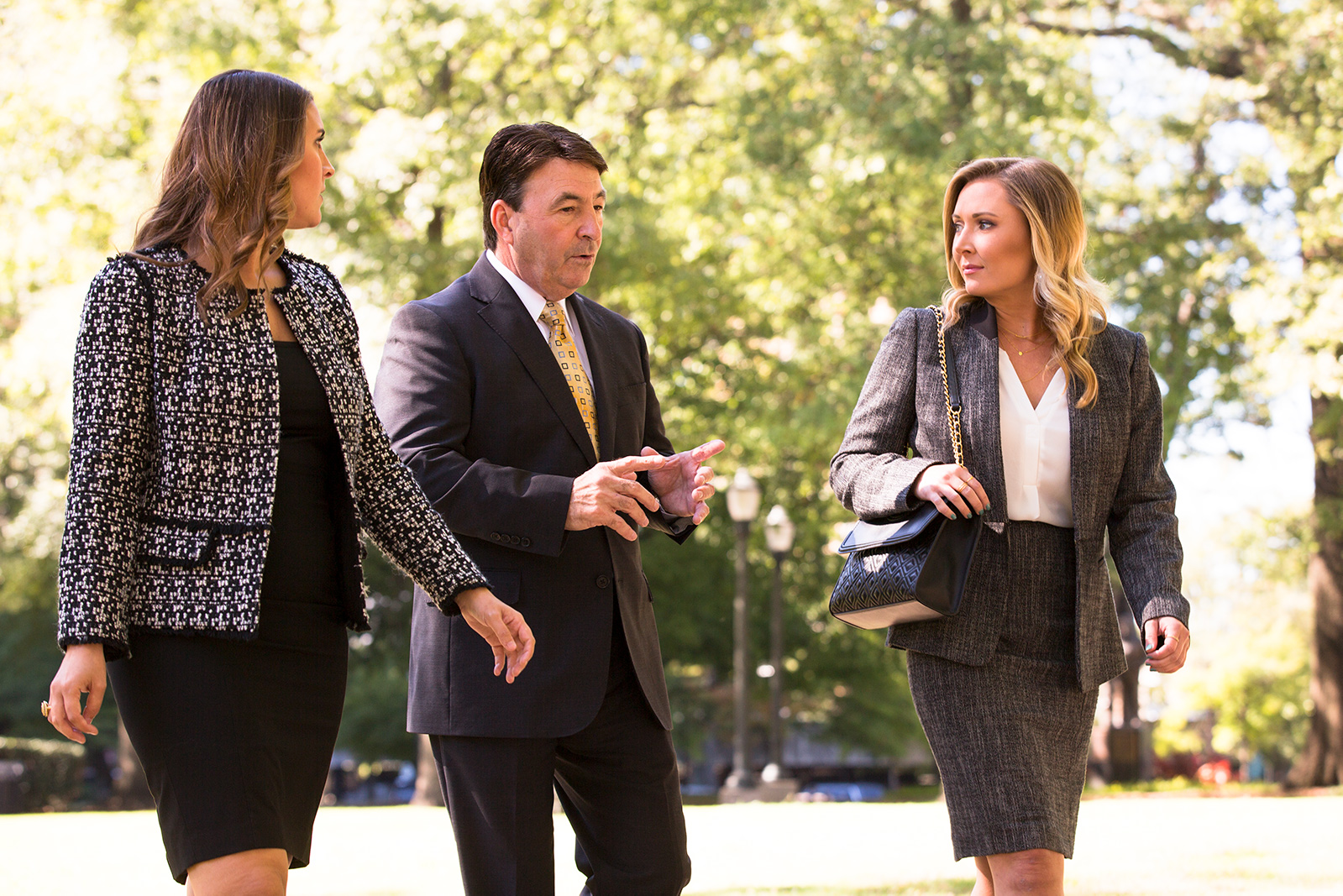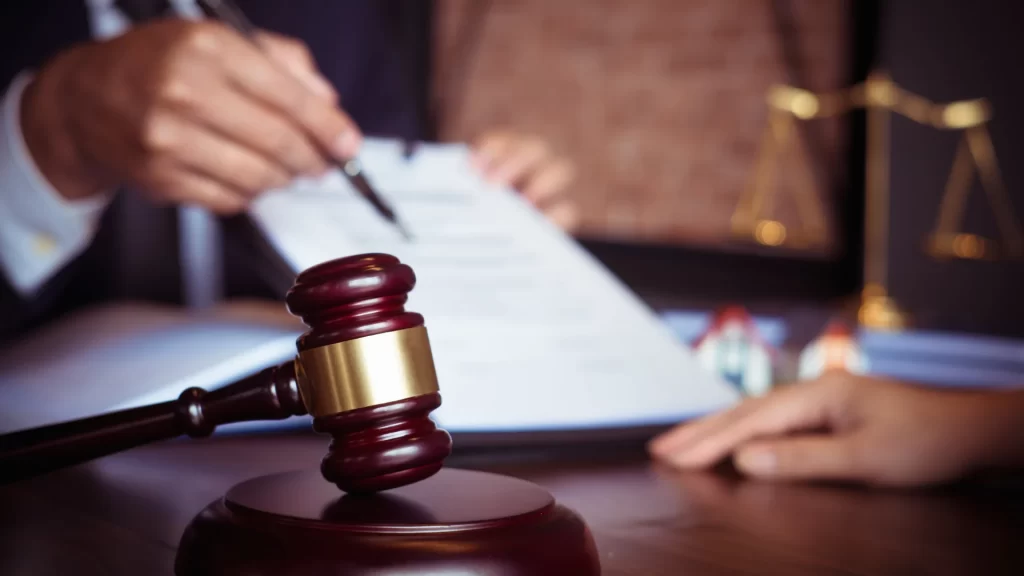
A wrongful death claim is a lawsuit pursued when someone is killed as a result of another person’s wrongful conduct. Hire a Birmingham wrongful death lawyer from Farris, Riley & Pitt, LLP to understand how to file a claim against that person.
In Alabama, the wrongful death statute is distinct from other states. It only allows punitive damages, punishing wrongdoers, and excludes compensatory damages for individual losses.
When a traumatic and unexpected accident takes a loved one’s life, it often leaves family members stunned, hopeless, angry, and uncertain about what to do next. Many times, the next of kin hesitate to reach out to a Birmingham wrongful death lawyer. However, the moments right after such a tragedy are pivotal in holding the responsible party accountable. It’s essential to take photographs of the scene and contact eyewitnesses promptly.

When a traumatic and unexpected accident takes a loved one’s life, it often leaves family members stunned, hopeless, angry, and uncertain about what to do next. Many times, the next of kin hesitate to reach out to a wrongful death lawyer. However, the moments right after such a tragedy are pivotal in holding the responsible party accountable. It’s essential to take photographs of the scene and contact eyewitnesses promptly.
Why Do I Need a Wrongful Death Lawyer?
Alabama’s wrongful death law only allows the personal representative of the deceased to file a claim. Alabama Code § 43-8-1 states that the term personal representative includes an “executor, administrator, successor personal representative, special administrator, and persons who perform substantially the same function under the law governing their status.”
The court may involve probate proceedings in the appointment of a personal representative. The process may become contentious among family members.
Family members often feel too overwhelmed by grief to find the time or energy to file legal claims. Farris, Riley & Pitt, LLP can handle all required filings and court appearances on your behalf so you can take all the time you need to grieve. Our firm will also speak to insurance companies on your behalf and engage in settlement negotiations. When an insurer doesn’t satisfy with their offer, we can file a lawsuit for a jury trial.
Why Choose Farris, Riley & Pitt, LLP?

Farris, Riley & Pitt, LLP has obtained several multimillion-dollar verdicts and settlements. Kirby Farris and Ken Riley have admissions to the United States District Court for the Northern, Middle, and Southern Districts of Alabama, as well as the Alabama Supreme Court.
Our firm has managed several wrongful death cases and can start an independent investigation immediately to determine the specific cause of your loved one’s death as well as all possible liable parties. We will collect all necessary evidence and interview all relevant witnesses. The Birmingham wrongful death attorneys at Farris, Riley & Pitt, LLP have represented many families who have lost loved ones. They know that each case element is vital to recreating the events leading to and following the victim’s death.
Employers often hire accident reconstructionists. At other times, experts evaluate and analyze machinery or products for faulty components. Our wrongful death lawyers in Birmingham go to great lengths to develop, prepare, and utilize all necessary evidence for trial.
Understanding Wrongful Death Claims in Alabama
The personal representative can initiate an action to recover damages for the death of a testator (someone who made a will) due to another party’s wrongful act, omission, or negligence. Typically named in the deceased’s will, if there’s no will, a probate court appoints the personal representative.
A wrongful death action is the personal injury claim the deceased would have pursued, now filed by their representative. To succeed in the claim, one must prove the defendant’s duty of care, its breach, and the resulting death. Individuals who have lost a loved one due to someone else’s negligence may be entitled to wrongful death compensation. It is crucial to have experienced legal support to handle the complexities of filing a wrongful death claim in Alabama, ensuring the compensation deserved during such a challenging time.
Insurance companies often argue the victim contributed to their death. It’s vital for family members and representatives to understand Alabama’s contributory negligence. In this state, any negligence by the victim that contributed to their injury can bar them from seeking damages. Therefore, those involved in wrongful death claims should refrain from giving recorded statements to insurers.
Alabama Code § 6-5-410(c) states damages from wrongful death actions aren’t subject to creditor claims. Awards must go to the deceased’s intestate heirs, even if a will indicates otherwise.
Common Causes and Challenges in Wrongful Death Cases
Wrongful deaths can result from various causes, including but not limited to:
- Car Accidents
- Truck & Tractor Trailer Accidents
- Motorcycle Accidents
- Railroad Accidents
- Slip and Fall Accidents
- Industrial Accidents
- Drunk Driving Accidents
- Defective Products
- Defective Medical Devices
- Dangerous Drugs
- Medical Malpractice
- Nursing Home Abuse
- Child Injuries
- Burn Injuries
- Bicycle Accidents
- Dog Bites
- Bus Accidents
- Scooter Accidents
- Rideshare Accidents (Uber/Lyft Accidents)
According to Alabama Code § 6-5-410(b), even if the defendant hasn’t been prosecuted, convicted, or acquitted for the wrongful act, omission, or negligence, one can still maintain a wrongful death claim. Additionally, when there are criminal charges against a wrongdoer, Alabama Rule of Evidence 609(a)(1)(B) allows for the admission of evidence regarding the accused’s conviction if the court finds that the value of the evidence in proving a fact is more important than any negative effect on the accused.
Proving a wrongful death can be exceptionally difficult. Family members often aren’t present at a loved one’s death to collect evidence or take photos.
Farris, Riley & Pitt, LLP will not only be able to diligently investigate the cause of death, but our firm will also identify all of the potentially liable parties. We can obtain police reports, review medical records, and consult with necessary experts.
Read more: Wrongful Death: The Top Signs You Should Hire a Wrongful Death Lawyer
Frequently Asked Questions
According to Alabama Code § 6-5-410(d), you must commence a wrongful death action within two years from the date the victim passed away. It is important to note that other provisions of Alabama law can affect the timing of a wrongful death claim, such as claims against municipalities or counties. Under Alabama Code § 11-47-23, any claims for damages growing out of torts against a municipality must be presented to the clerk within six months. Alabama Code § 11-12-8 establishes that claims against counties must be presented for allowance within 12 months. In every case, a person will want to retain legal counsel as soon as possible. Cases of this type also have limited or “capped” damages. A wrongful death attorney can provide essential support, navigate complex legal processes, and help secure the compensation needed for recovery and justice.
Under Alabama Code § 11-47-190, no judgment or combination of judgments against a municipality and/or any officer or officers, employee or employees, or agents thereof can exceed $100,000 per injured person up to a maximum of $300,000 per single occurrence. Alabama Code § 11-93-2 limits the maximum amount of damages recoverable against governmental entities to $100,000 for bodily injury or death for one person in any single occurrence and $300,000 in the aggregate when more than two persons have claims or judgments on account of bodily injury or death arising out of any single occurrence.
While the personal representative files the wrongful death lawsuit, the heirs of the deceased receive the proceeds. The “statute of distributions” or Alabama intestacy laws dictate the distribution of these proceeds. It is important to note that compensatory damages in wrongful death claims often include financial losses such as funeral and burial expenses, which are significant for the survivors of the deceased. Under Alabama Code § 43-8-41, the intestate share of the surviving spouse is as follows: entire intestate share when there is no surviving issue or parent of the decedent; first $100,000 plus one-half of the balance of the intestate estate when there is no surviving issue but the decedent is survived by a parent or parents; first $50,000 plus one-half of the balance of the intestate estate when there is a surviving issue, all of whom are an issue of the surviving spouse also; and one-half of the intestate estate when there are surviving issue, one or more of whom are not issue of the surviving spouse.
Alabama Code § 43-8-41 establishes that the part of the intestate estate not passing to the surviving spouse or the entire intestate estate if there is no surviving spouse passes as follows: children divide the estate equally if all of the same degree; the parent or parents inherit everything if there are no children; siblings if there are no children or parents; and grandparents or issue of grandparents if there are no children, parents, or siblings.
No. While state or federal law does not tax most personal injury awards, the Internal Revenue Service typically taxes punitive damages. Luckily, IRC §104(c) offers an exception when state law, like Alabama, allows only punitive damages in wrongful death cases.
Wrongful Death Statistics
Unintentional injury deaths are the third-leading cause of death nationwide in 2024. The Centers for Disease Control and Prevention (CDC) reported that there were 227,039 unintentional injury deaths in the United States in 2024. This translates to 68.1 deaths per 100,000 people.
There were 25.5 million emergency department visits for unintentional injuries that year.
Per the CDC, 44,630 unintentional injury deaths were the result of falls in 2024. Additionally, 44,534 unintentional injury deaths resulted from traffic accidents and 102,958 from unintentional poisoning.
Contact a Birmingham Wrongful Death Attorney
Farris, Riley & Pitt, LLP has been helping families all over Alabama for more than 20 years. A wrongful death attorney in Birmingham understands the devastating long-term impact of a loved one’s death and commits to helping you get justice and compensation.
If your loved one was killed by another party’s deliberate conduct or negligence in Jefferson County, contact Farris, Riley & Pitt, LLP right away. You can have our lawyers provide an honest and thorough evaluation of your case. Call (205) 324-1212 or contact us online to schedule a free consultation with our firm.
Related Posts:















